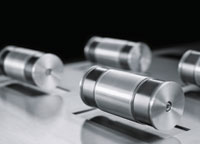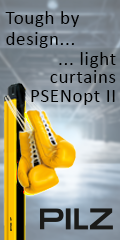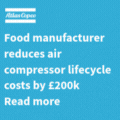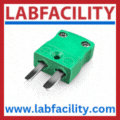
Posted to News on 16th Sep 2016, 00:00
Contactless handling and transport of objects
Superconductors could offer tremendous potential for industrial automation, enabling clean and low power contactless handling and transporting of objects. Festo is conducting research and development into this technology, demonstrating new applications under its SupraMotion banner. We look at how superconductivity could help drive productivity, performance and safety.

Superconductors are materials with remarkable properties: when cooled below a certain temperature, their electrical resistance drops abruptly to zero. They can also ‘freeze’ the field of a permanent magnet at a defined distance – thus causing it to hover or levitate, with the resultant gap remaining stable in any spatial position. Objects can be held in position contact-free without any control technology and can be moved with only minimal energy requirement. Advantages of the technology include low energy, high load capacity, frictionless motion, low maintenance and high durability.
Superconductor technology is currently used in Japan’s incredible record-breaking 373mph maglev train, in medical MRI scanners and for beam steering in particle accelerators, including the Large Hadron Collider at CERN. Other superconductor applications being researched and tested include plasma confinement in tokamaks (experimental magnetic confinement devices which aim to be the basis for the design of future fusion reactors, harnessing plasma at 150 million degC – ten times the temperature of the sun’s core), as well as dramatically faster computing power and higher performance RF and microwave filters.
Plenty of research has gone into superconductor technology since its discovery in 1911, but the largest obstacle remains the extremely low temperatures required by superconductor materials to reach their transition temperature, typically very close to absolute zero (–273°C). This meant that superconductivity could only be achieved using costly and complex cryogenic refrigeration techniques, involving liquid helium. As a result, practical applications were few and far between and mostly limited to exotic laboratory devices. More recently, in the late 1980s, a new family of superconductor materials was discovered with transition temperatures above 90 Kelvin (–183°C). While 90K is still a cryogenic temperature, it can be reached and maintained far more easily and at far lower cost, using liquid nitrogen. Although the term is clearly relative, these materials are known as high-temperature superconductors.
This is why Festo has been intensively researching superconductor technology and its industrial use for several years. For SupraMotion, Festo relies on high-temperature superconductors made of ceramic material. Their transition temperature is around 93K (–180°C), meaning that the technology can be operated in an energy-efficient way, independent of cooling media such as liquid nitrogen. The coolers currently used have an energy consumption of 80W maximum per cryostat (cooling container), resulting in low operating costs and the hovering effect in itself incurs no costs. Thanks to the stored cooling energy, the operation, even in the event of a power failure, is guaranteed for several minutes. The service life of the coolers already extends to up to ten years.
Superconductor technology could deliver significant advantages for industrial automation applications, helping drive productivity and performance. It allows hovering objects to be held in position, handled or transported in all directions and positions without direct contact, making it ideal for clean, sterile and sealed environments, at very low power consumption.
The use of superconductors in industrial automation is still in the development stage. Yet even today, completely new and efficient processes are conceivable with the technology, wherever contactless handling is called for – for example due to cleaning aspects, when there is spatial separation or when dealing with sensitive objects.
In order to move objects while hovering, there are already various forms of technology with advantages and disadvantages for each application and a wide range of bearing and movement forms have already been developed and demonstrated through Festo’s SupraMotion projects. The automation specialist is now moving forward with lead user partners and customers, developing pilot projects and real-world applications. Its SupraChanger and SupraPicker technologies are finding applications in biotech and pharma, end-of-line packaging, and food amd beverage, where clean and sterile processes are needed.
SupraPicker is ideal for movement in enclosed spaces. With the aid of a hovering magnetic puck, the superconducting gripper arm guides the workpiece through a lock into a protected space, where it can be further processed beyond the wall. With SupraChanger, a controlled and contactless rotational movement is transferred across hovering magnets on three applications, which can then be changed over in turn.
The SupraMotion technologies continue to be developed and this year three new concepts have been introduced: SupraJunction, SupraGripper and SupraTube. Festo has developed these proof-of-concept projects to demonstrate the potential of superconductor technology and to help shape the production, industrial automation and working worlds of the future.
The cost of the super cooling cryo generators is still the restricting factor but as the applications move from high technology satellite and space applications into industrial automation the costs will drop dramatically and enable the further expansion of the application fields. New procedures using superconductors are conceivable where alternative technologies cannot be used or are unattractive due to the high level of energy and control required. Between Festo and its customers, superconductivity has the potential to transform handling and transport in industrial applications.





